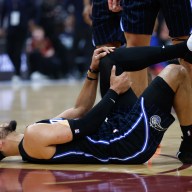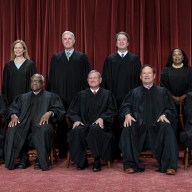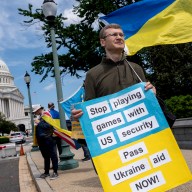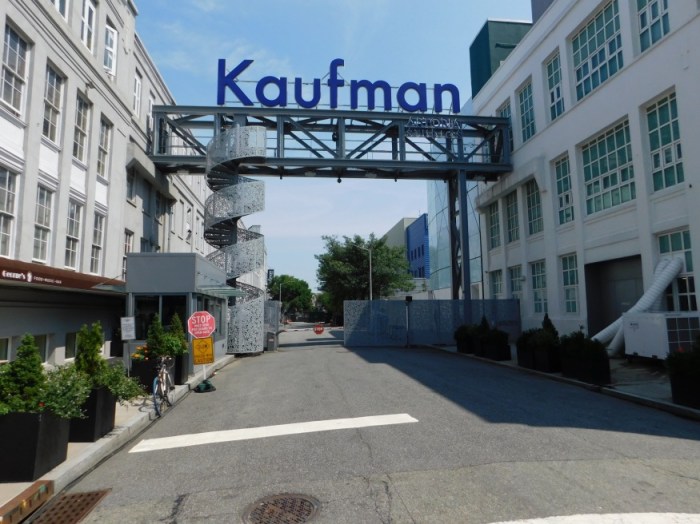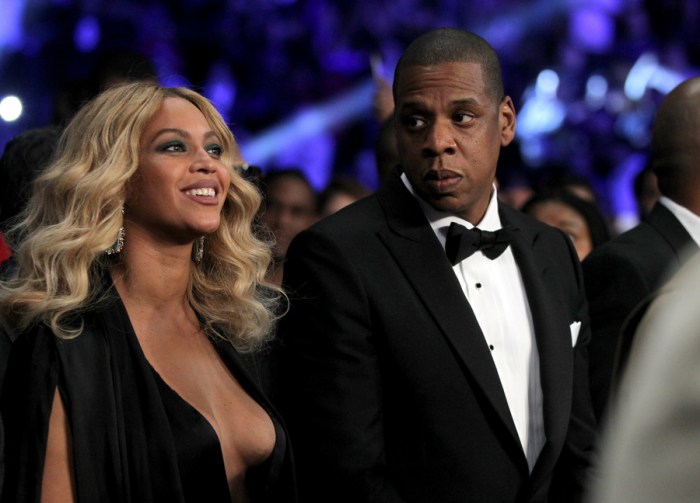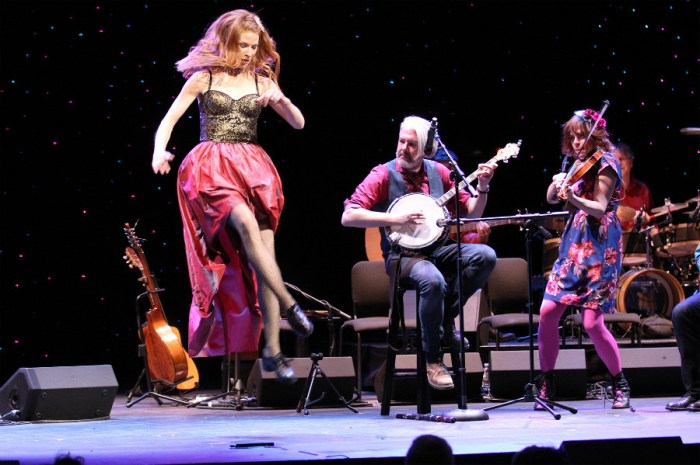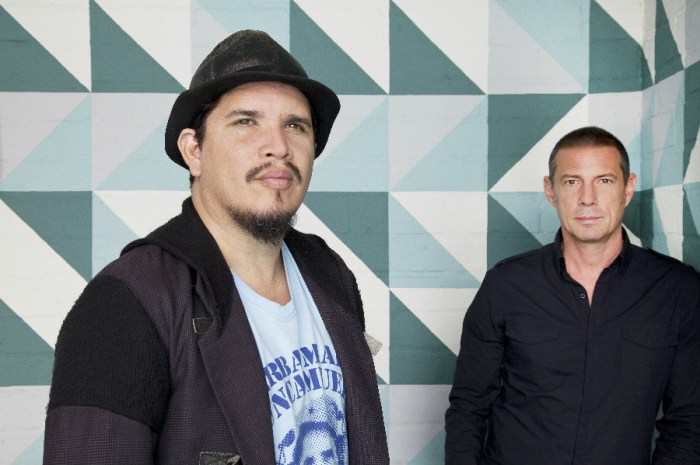Henry Rollins may have stopped making albums in 2004, but he’ll never stop being punk rock. The smartly aggressive one-time frontman for Rollins Band and Black Flag has been doing his humorous, scorched earth soliloquies as a spoken word artist —in print and on-stage – since the ’80s, along with maintaining a career as an actor, podcaster, radio host and activist. Rollins has spent the last several years off-stage, having co-written and conceived the rocker film “Gutterdämmerung”that, so far, has only played during European music festivals. (“It’s about a guitar that’s thrown to earth from heaven by a bad angel, played by Iggy Pop,” he explains.) Yet, Rollins never stopped gathering and fine-tuning material for his upcoming spoken word tour. The question about why an artist doesn’t do what she or he’s done on a regular basis is tired, but there was a time when you toured your spoken word joint on a timetable. Was there a reason you slowed your roll outside of film and television projects? Did you want those who appreciate you to miss you, or was it more about re-charging? It was every other year for a while. One year to gather information, one year to tell the stories. I came to the conclusion that I was coming to town too often. I don’t want people thinking that I’m constantly demanding their attention or wanting to thin down their wallets. I think there is such a thing as too much. SoI decided to space them out more. This is the longest period I have not done a world tour, four years. That’s a good amount of time for the audience but it’s not all that easy on me. I would rather be out more often. So you have a wealth of material built up inside of you. Why now to set it free? It must have something to do with the current election cycle?
There is indeed a lot of material. I’ve been on tour for the last several election cycles —an interesting time to be on tour anywhere because all over the world, people watch the United States. Touring in the U.S. in the weeks before a presidential election is interesting. I don’t have much to say about the election. I think everyone knows what it is and what’s at stake. For me, what’s interesting is how we got to Trump/Clinton. The rest, at this point, is just entertainment and tragedy. In my opinion, each candidate is reliably unreliable where honesty and virtue is concerned.
I think they’re the product of an undereducated electorate in a country that has run out of ideas on how to admit that it doesn’t want to get moving. It is what it is. Equality is nice to talk about, but as a practical, day-to-day mechanism, the U.S. isn’t all that interested. If it were, things would be much, much different. Are you writing and re-writing every bit of the stage show or is there a sense of improvisation?
I’m not interested in improvisation. I believe in preparation and a lot of it. I work through ideas out loud. It takes a long time but for me, it works. I have a healthy respect for the audience and fear of failing them. I don’t want to go onstage and flail around, I want to deliver, so I prepare. You nailed your first lead role in a film (2015’s “He Never Died”). What parts do you hope to play? I mean, you don’t want to play dads, do you?
When it comes to acting, I get what I get. I’m not high on anyone’s hire list. I’m not an actor, so it’s amazing I get anything at all. I am not in the position to where I am telling people what I want and it’s brought to me. That’s never going to be the case. Now and then, I get acting work. I’m grateful for it and do the very best I can. I was sent “He Never Died,”I read it and liked it. The writer told me he had written with me in mind, which I still only partially believe. Still, the script was original and funny in interesting places. You shy from nostalgia —or at least you have in the past. Why?
I don’t mind listening to old records, but I don’t want to be 23 again. For me, the past is ultimately sad and besides that, it’s the past. I am more interested in what’s happening and what will be happening. I just don’t see the good in wanting it to be yesterday. I like remembering stories and visiting old haunts, but I don’t want an old job back, or to be in high school again. You certainly have passion in your spoken word work. How does that compare to the lust for life that music once represented to you?
It is what I am doing now, so that’s it. Whatever I’m doing at the moment gets all of me. It makes things easy in a way. I just go at what’s in front of me with all I have. To make a comparison, the music was physically more demanding, but not as difficult as being alone onstage with just my mind. I like being onstage alone. It makes sense to me now. No band, no wall of volume. Just me. Pass or fail. What do you believe draws audiences back to your spoken word events? My idea is that, like Franklin Delano Roosevelt, there is a sense of the fireside chat with you – albeit more incendiary. I think your idea is good. I always thought of my radio shows as fireside chats. Perhaps that they’re not trying to be funny all the time, that perhaps they have a ring of truth, I don’t know, exactly. I try to put together a show I would go to. It can’t be boring and it can’t go slow. Those are the rules. ………………….
Saturday and Sunday, Oct. 22 and 23, 8 p.m., The Trocadero, 1003 Arch St. Philadelphia,$29.50-$32,www.thetroc.com,
Tuesday, Oct. 25, 7 p.m., The Gramercy Theatre, 127 E. 23rd St., New York, $35-$45, www.thegramercytheatre.com
Saturday, Oct. 29, The Wilbur, 246 Tremont St., Boston,$37-$162,www.thewilbur.com
Henry Rollins: Why he doesn’t live in the past and this year’s election
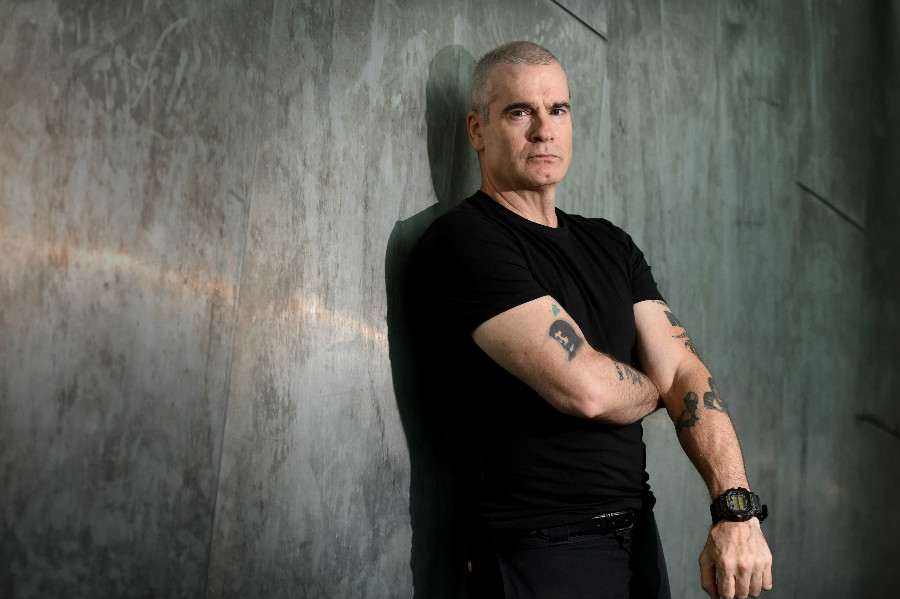
Getty Images





